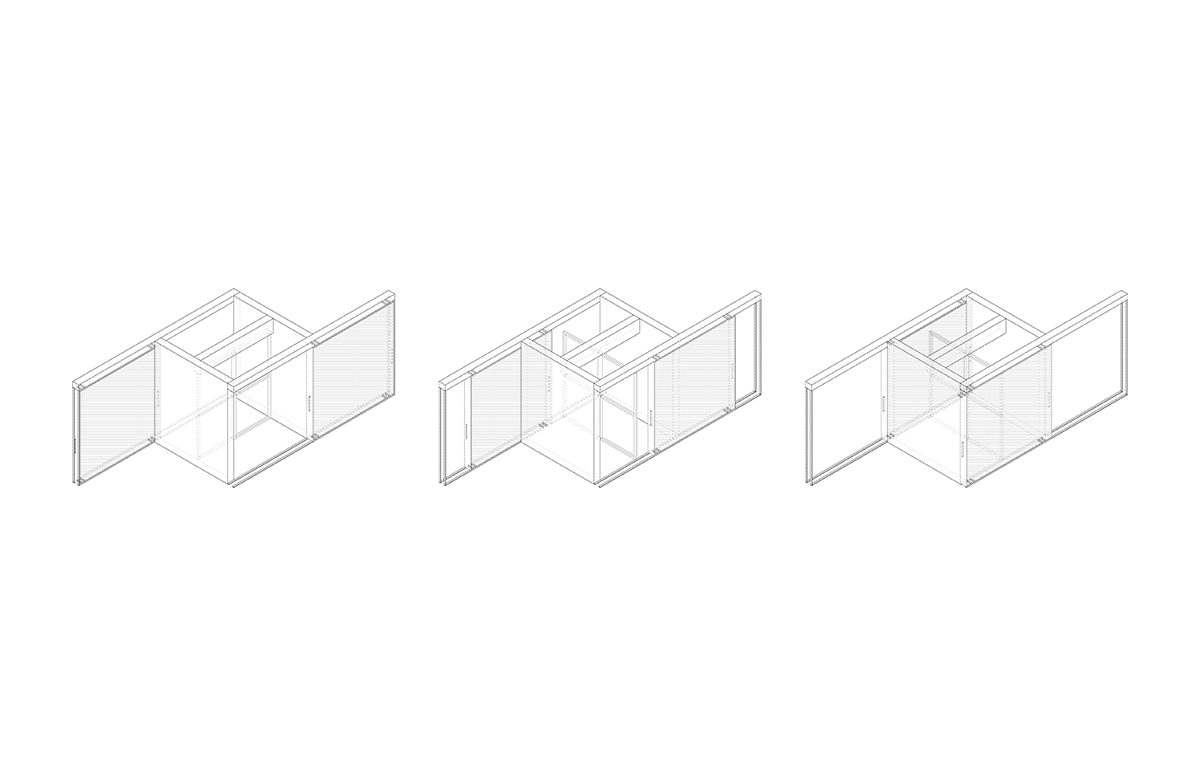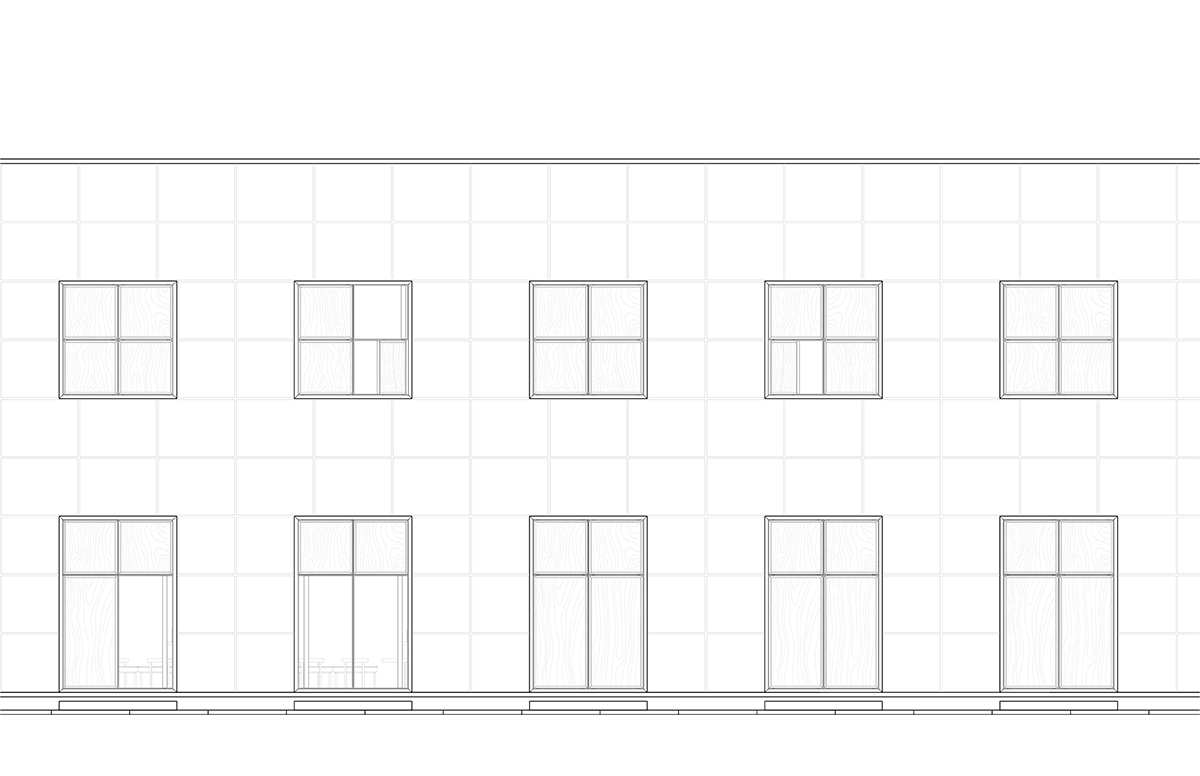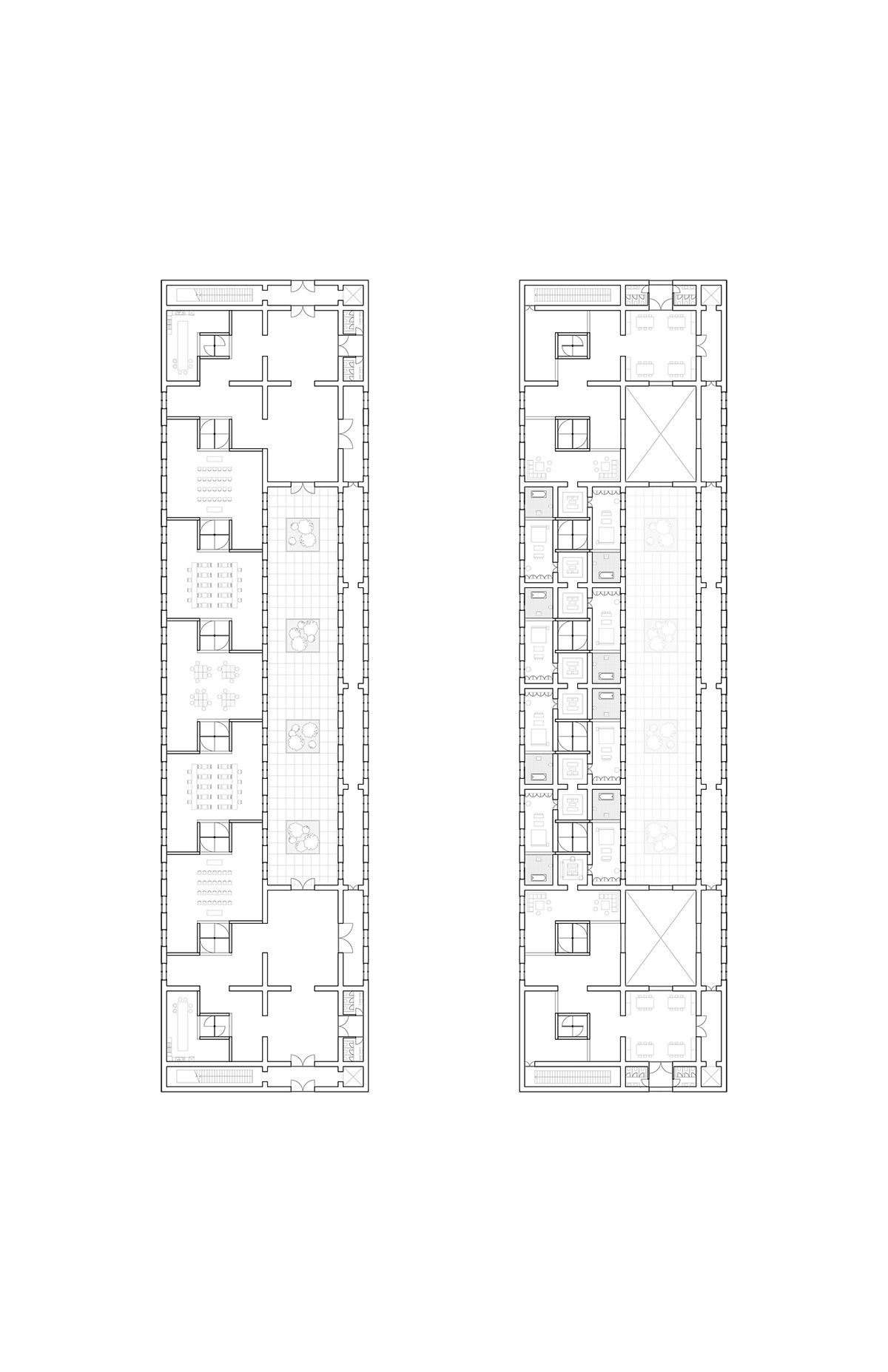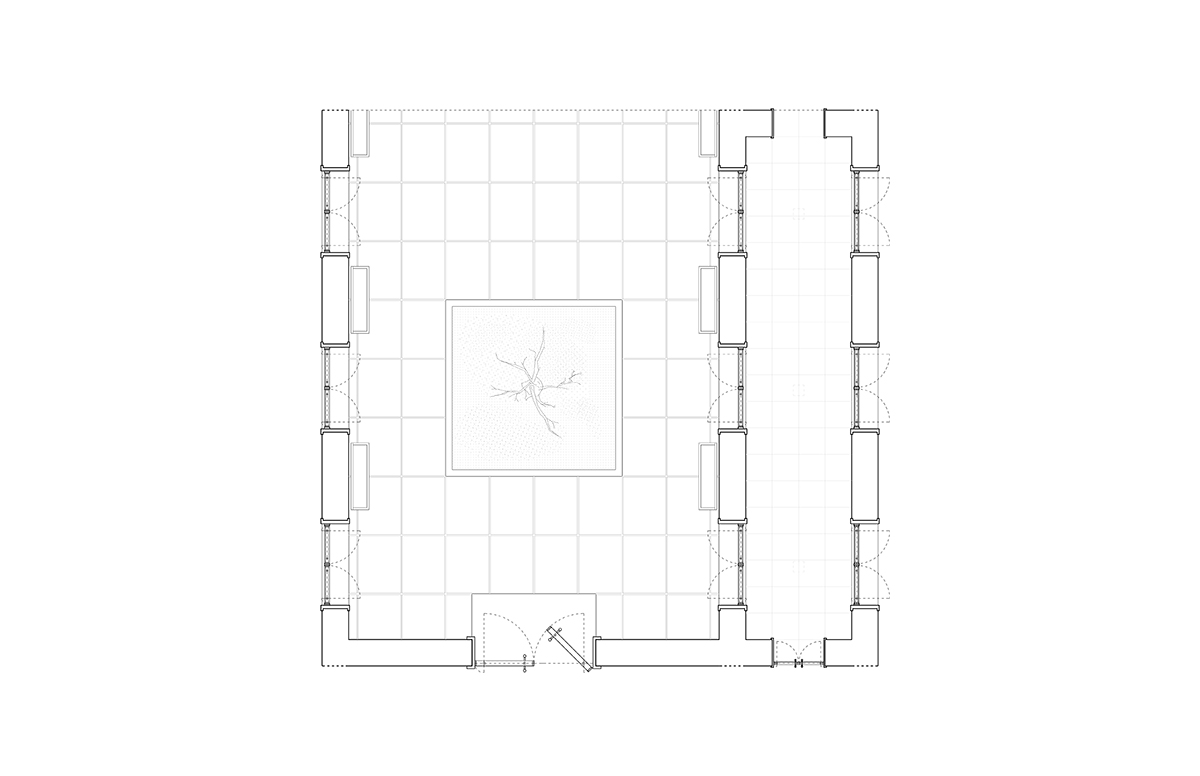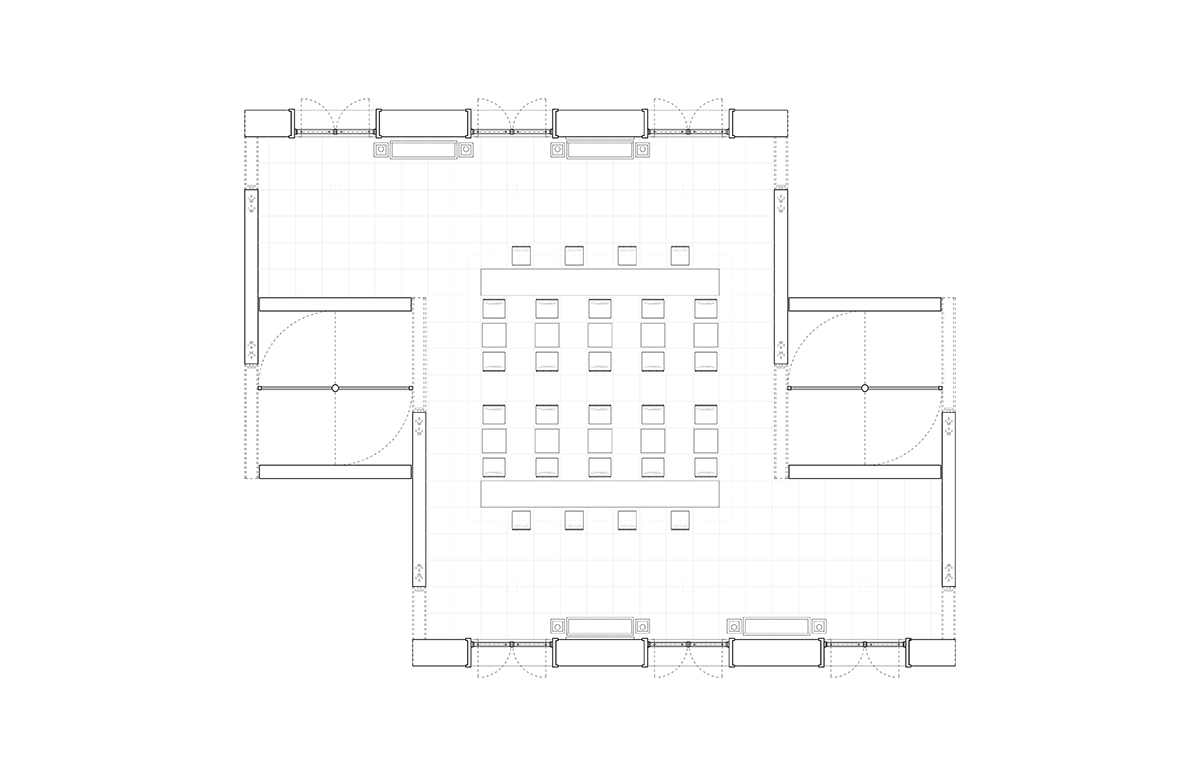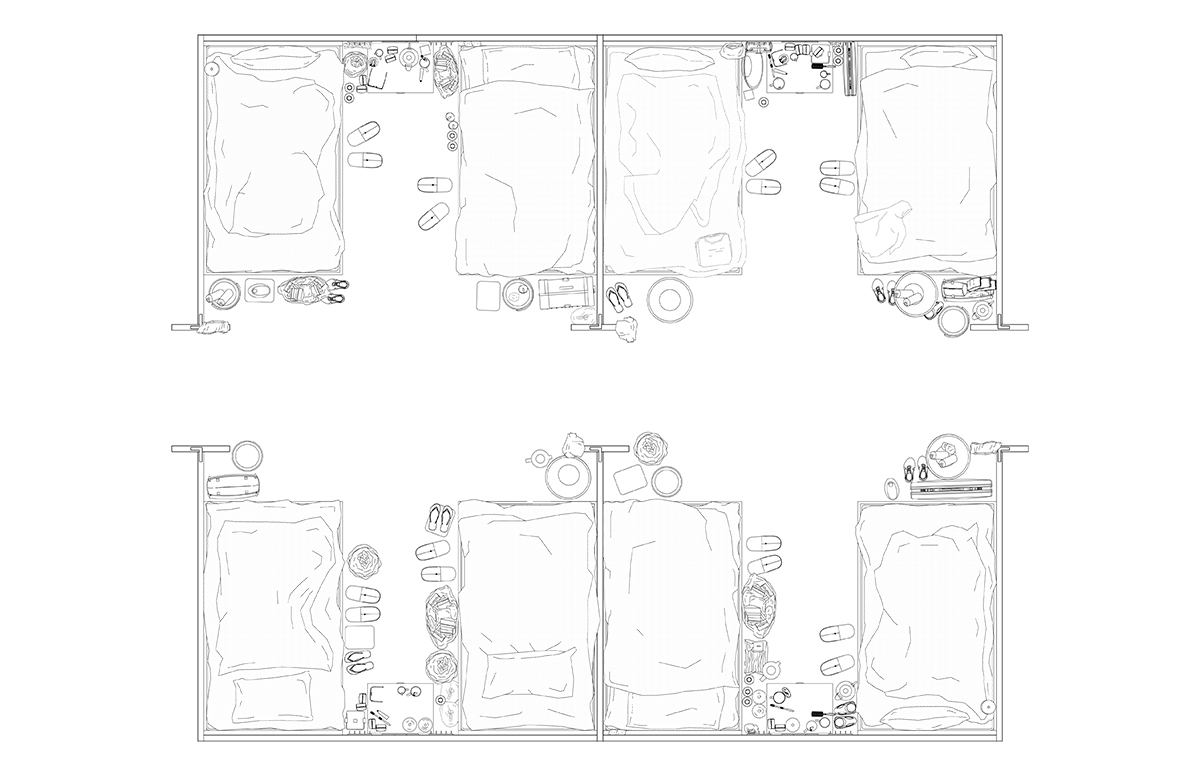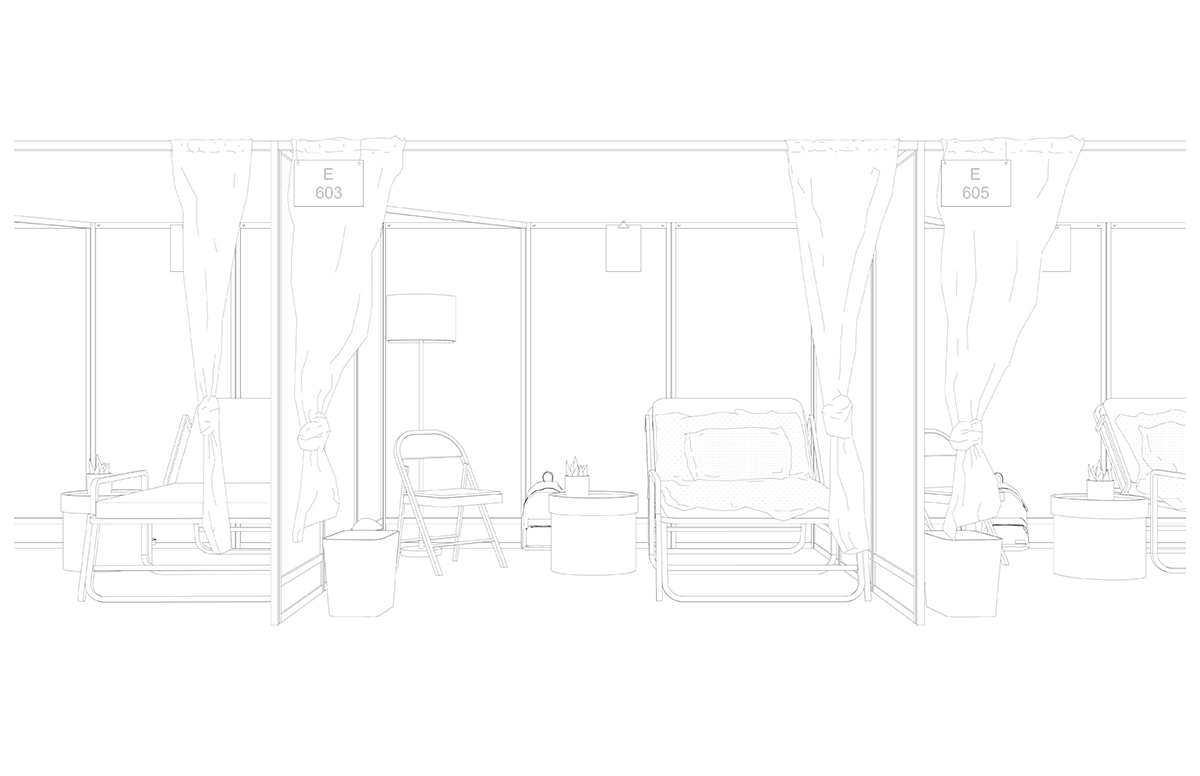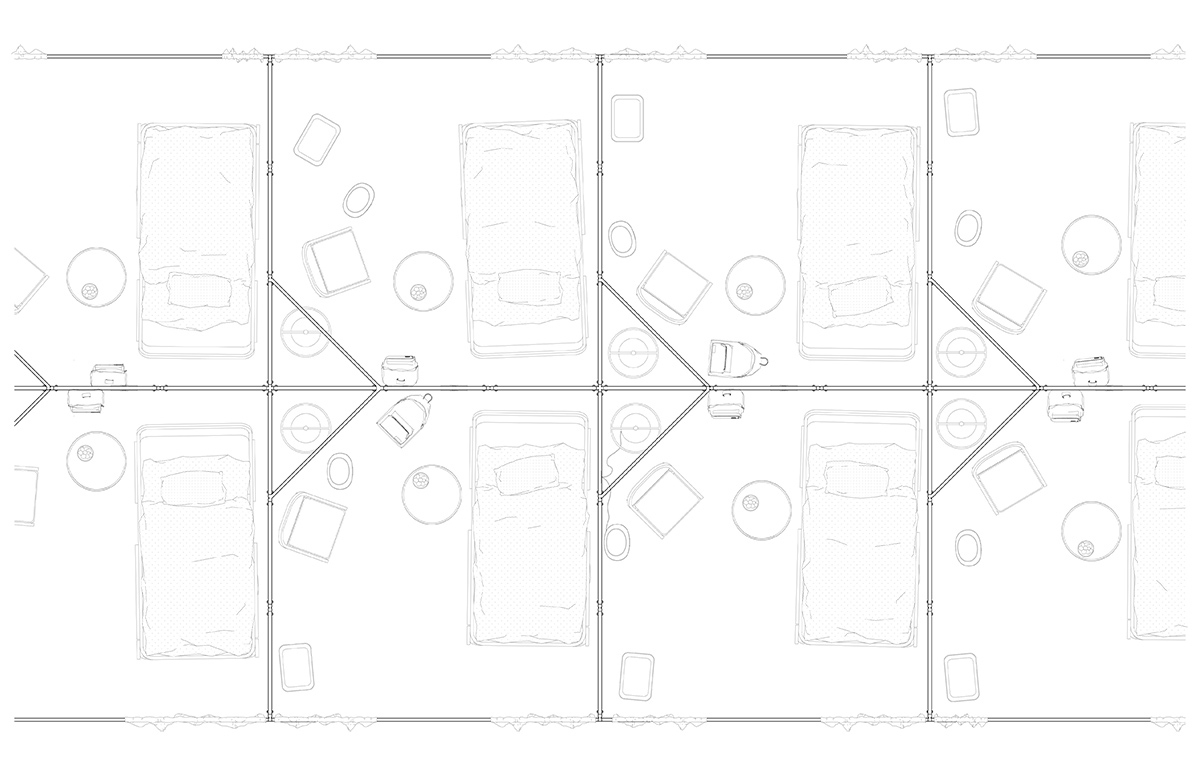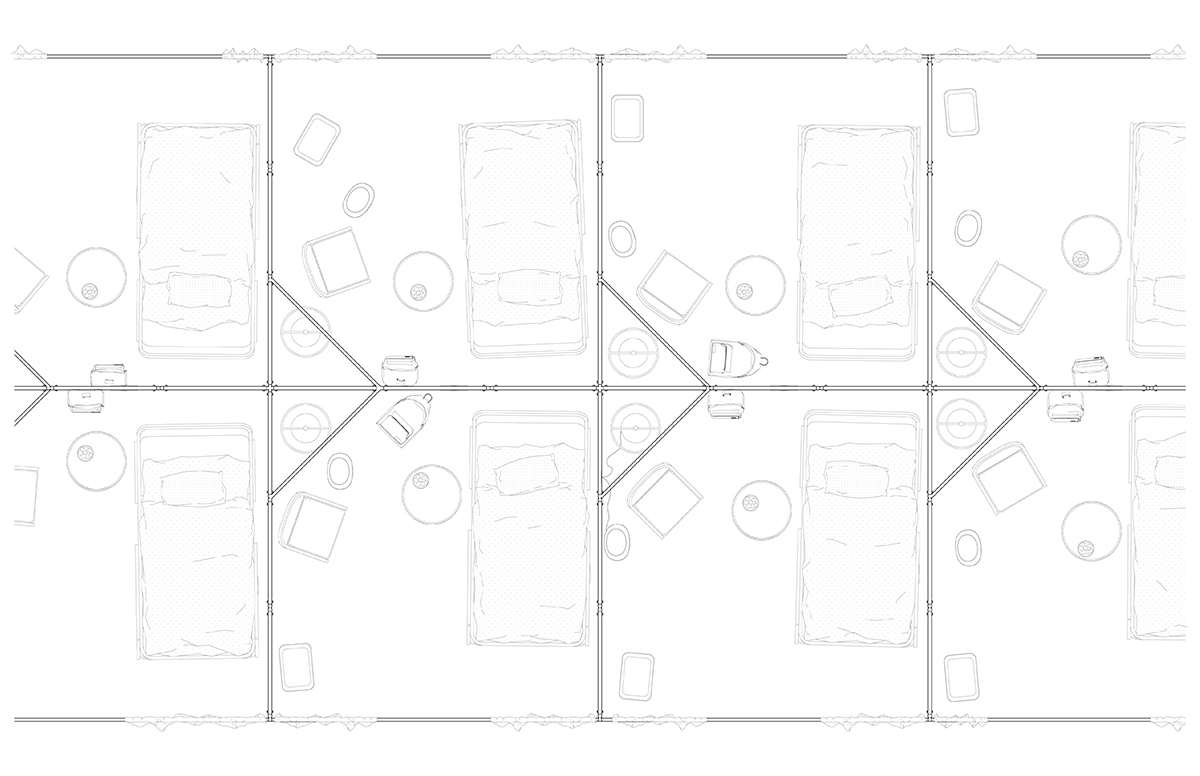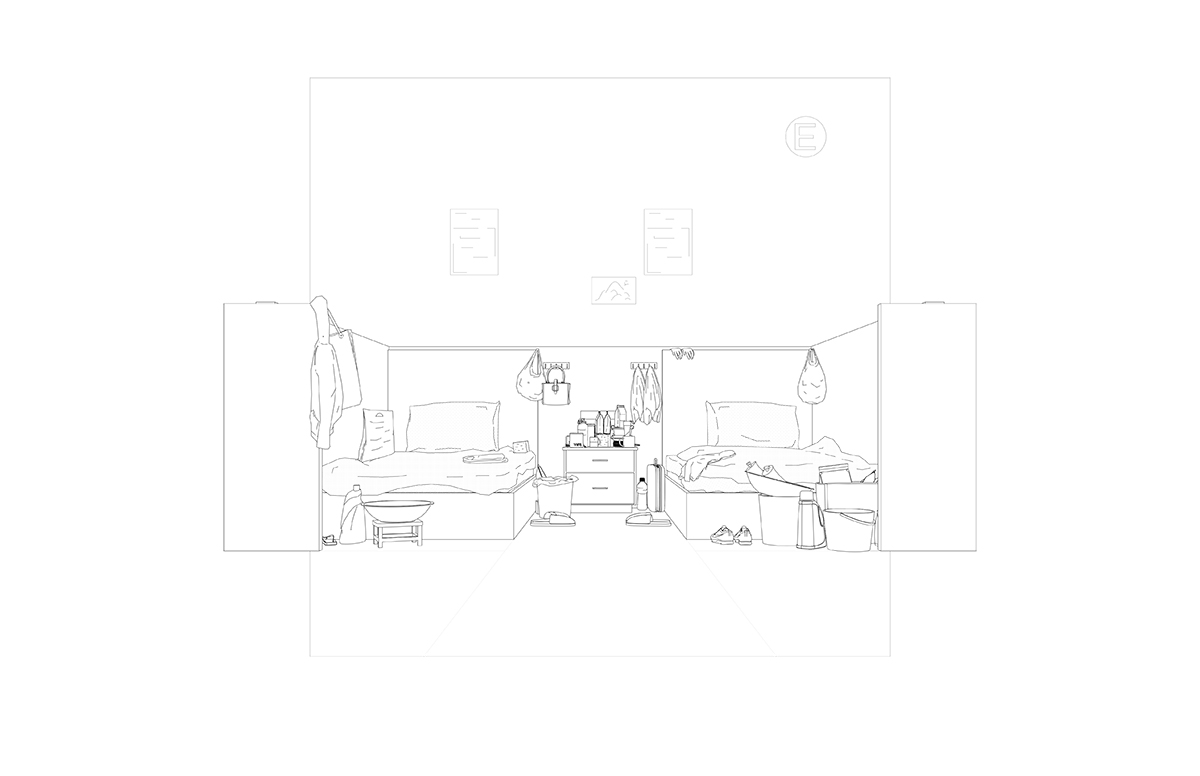Rethinking the “Room” through the Pandemic: Isolation, Openness, and Confrontation
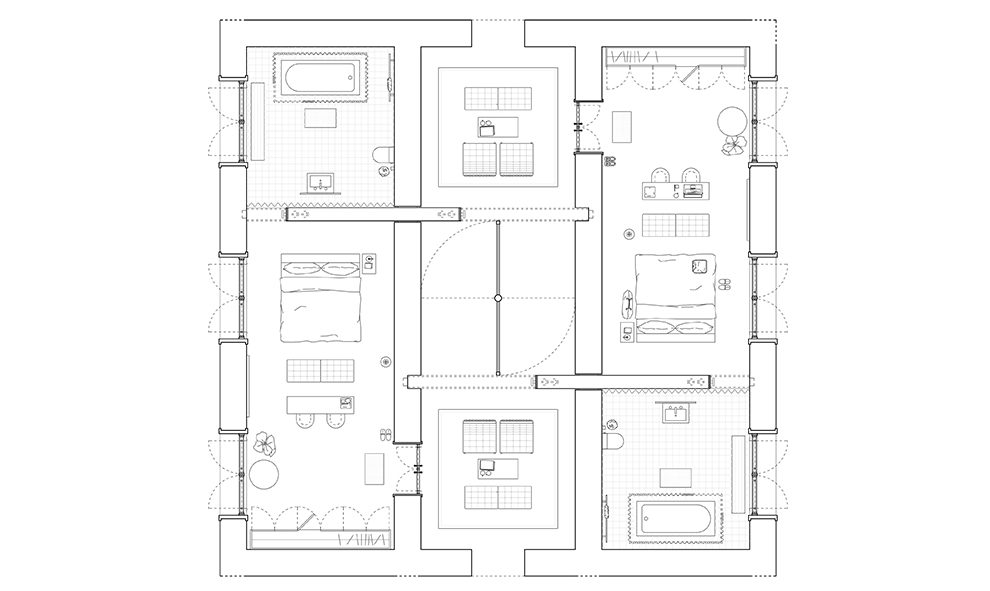
by Clara Hu Me (MArch I ’24)
Based on a formal and theoretical examination of the field hospital—a type of medical architecture that has emerged more widely under COVID-19—this project proposes a critical speculation on how the pandemic will reshape our engagement with public spaces. As pandemics always provide a ground for the rehearsal of utopian governance, it is arguable that the field hospital has become the perfect stage set for this rehearsal. Highly controlled, ordered, surveilled yet surprisingly open, the field hospital environment puts all occupants in a strange condition of intimate confrontation. Spatial privacy is eradicated yet social isolation is bolstered, forcing the occupants to assume a state of mutual-surveillance and self-discipline.
From this observation, the project seeks to engage critically with the assumed conventions of a community house, through evoking the paradoxical relationship between openness and isolation, distance and intimacy, that is brought to the fore in the field hospital. Through implementing the architectural device of a convertible core, the implied spatial and visual connectivity of the enfilade is destabilized, entailing a spectrum of conditions in the ground floor plan. On one end of the spectrum, the rooms are visually connected but spatially isolated, and on the other end they are visually isolated but spatially connected. On the second floor, the convertible cores create a dynamic interplay between the public and the private. They are neither visually nor spatially connected, but are linked through a common tactile operation, thereby achieving a kind of uncanny intimacy within isolation and distance.
